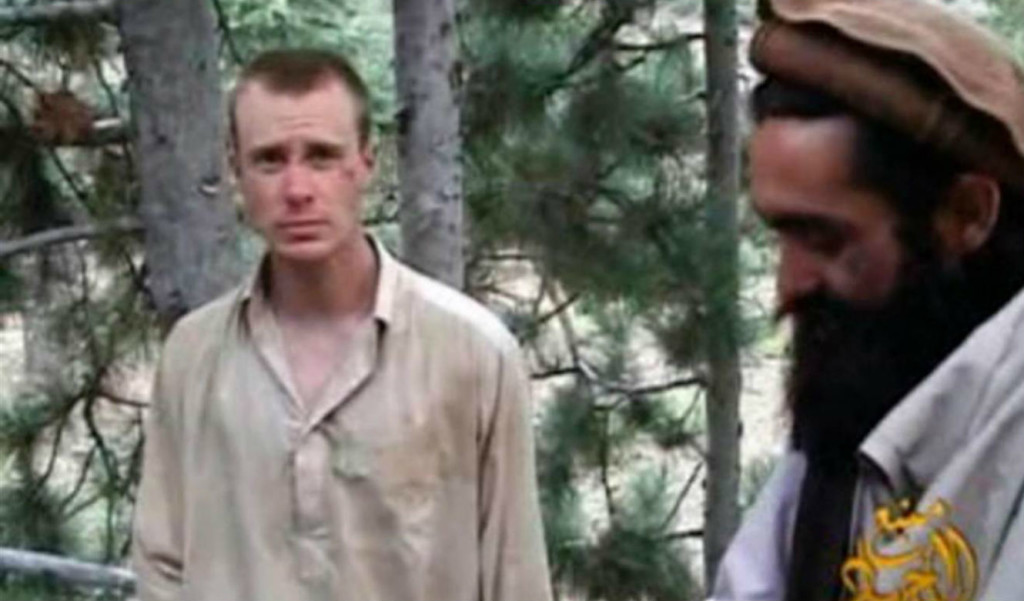Afghanistan, Bowe Bergdahl, and the Lessons of Serial

Late last summer, a friend asked if I would be interested in being interviewed for the second season of Serial. As one of the apparently few people in America who had not heard the first season of the successful podcast, I was somewhat skeptical of their ability to get at the real story of Bowe Bergdahl and our broader efforts in Afghanistan. But I had been running operations for the brigade just north of Bergdahl’s when he went missing and had experienced the diversion of assets to aid in the search. I had returned for another tour in 2012 as a combat advisor and again for a brief visit in 2014. So the war had been on my mind for some time. And as an occasional academic and student of American civil-military relations, I felt obligated to engage anyone committed to telling the story of our military.
Since then, I’ve been asked by those who heard me on the podcast: Did the host, Sarah Koenig, have an agenda? It’s a valid question. Ever since the Guantanamo prisoners were freed and President Obama announced his release from the Rose Garden, Bowe Bergdahl has been a lightening rod for controversy and a Rorshasch test for those with competing views on the war in Afghanistan, and American politics generally. I was unsure myself, at first. But now I can say that yes, she did have an agenda: to tell the story. And for that we should all be grateful.
It seemed that every time I went to Afghanistan, I left an America almost entirely oblivious to the ongoing war. While news coverage temporarily spiked with the surge of forces in 2010-2011, the war seems to have been all but forgotten despite the continued presence of Americans in the fight. So the idea that anyone would be willing to spend 11 solid hours on air digging into the story of America’s involvement in Afghanistan is incredible, and in my view long overdue. The extended inquiry required interviewees and listeners to move beyond preconceived notions. Each of us were allowed to state our opinions, but nobody was immune from follow-up questions. This dogged inquiry ultimately highlighted the twin components of warfare: uncertainty and humanity. The latter at its best, and worst.
It was a service to all of us that Serial zoomed out from the story of Bergdahl himself, and made us wonder how our Army could be so desperate for recruits to take someone who washed out of Coast Guard basic training after an emotional breakdown. The last episode also highlighted the confusion around an Army report that has been referenced (but might not actually exist) that concluded that nobody died in the search for Bergdahl. This was paired with the strong assertions of a former general officer that, of course people died in the search, even though nobody can point to a specific casualty. As such, the series concluded with a stark reminder that our bureaucracies often get it wrong, and our leaders sometimes speak with more authority than they should.
I also learned that there was a lot I did not know. I’ve known and worked for years, and in some cases decades, with several of the other soldiers and policymakers interviewed for the podcast. It was a treat to hear them discuss their experiences from the White House or the bowels of the Pentagon, and a little embarrassing that I was often hearing their perspectives for the first time. But in this I was clearly not unique. Journalism, done right, pulls threads and collects diverse views in an attempt to get us all closer to truth. It also performs an essential task for our democracy by reminding us that people are not infallible, nor are the institutions they create.
From the start, Bergdahl’s was a story caught up in the fog of war and the strictures of bureaucracy, and only first brought to light as part of an ongoing partisan struggle over foreign policy. As such it was filled with stereotypes of heroes and victims and dominated by righteous posturing. By adding humanity and much-needed nuance to the story, Serial reinforced how grateful I am to live in a country that was so persistent in getting an American soldier home, and does not outsource justice to the Taliban. I think the producers of Serial would agree that the series did not end with the revelation of absolute truth. But it did remind us of the need for humility in decision-making, and the essential role of journalism in America.
Jason Dempsey, PhD, is an adjunct Senior Fellow at the Center for New American Security and a Senior Advisor for Military Affairs to the School of Professional Studies at Columbia University.

